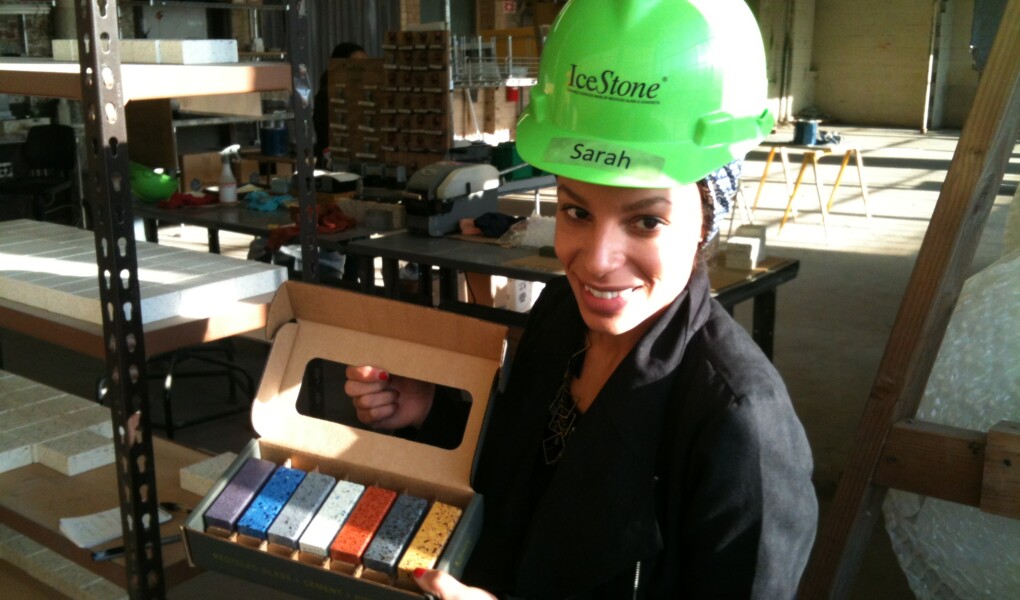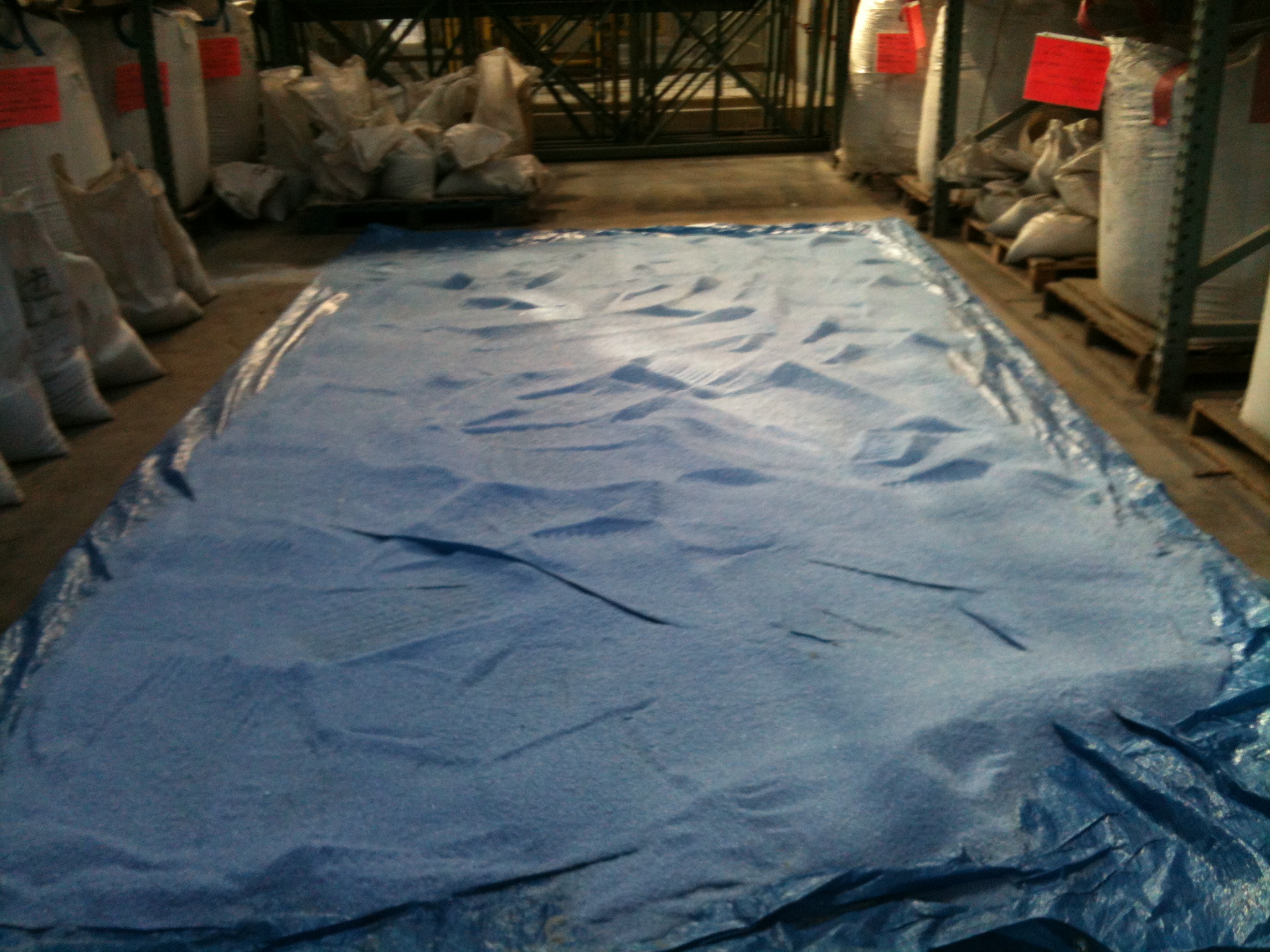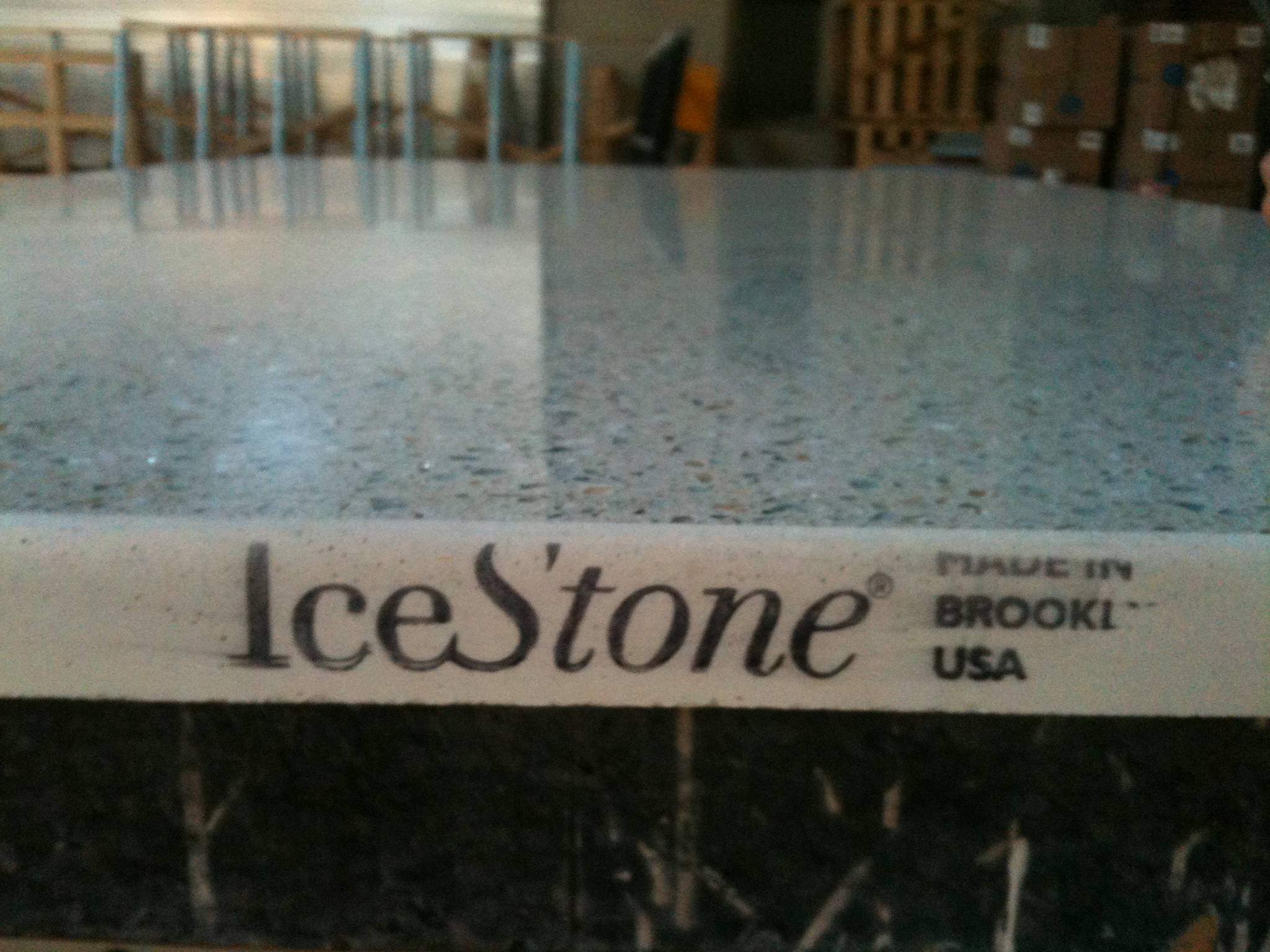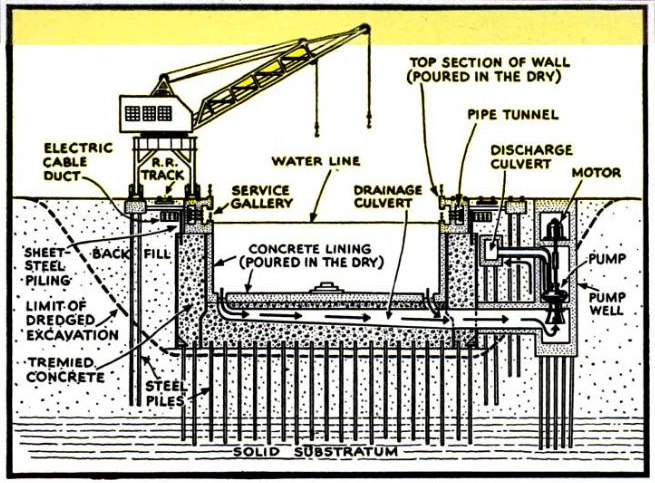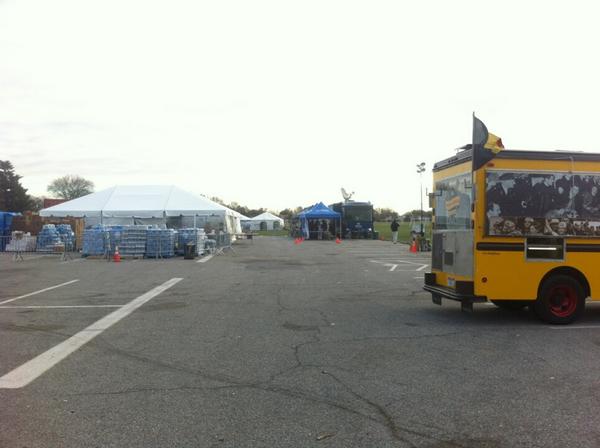We all know that glass is made of sand, but Hurricane Sandy was no friend to recycled glass countertop manufacturer IceStone. The Brooklyn Navy Yard tenant was hit hard by the storm, with their manufacturing and warehouse floor submerged by almost four feet of water, causing damage to their facility and materials. The East River water that washed through the yard stained valuable slabs of finished countertop, contaminated high-grade raw materials, wreaked havoc with floor-level electrical systems, and disabled the conveying and fabrication machinery. In addition, the heart of the company’s marketing campaign – hundreds of beautiful sample pieces and 2000 purpose-built sample boxes and intricately designed binder displays – were completely destroyed.
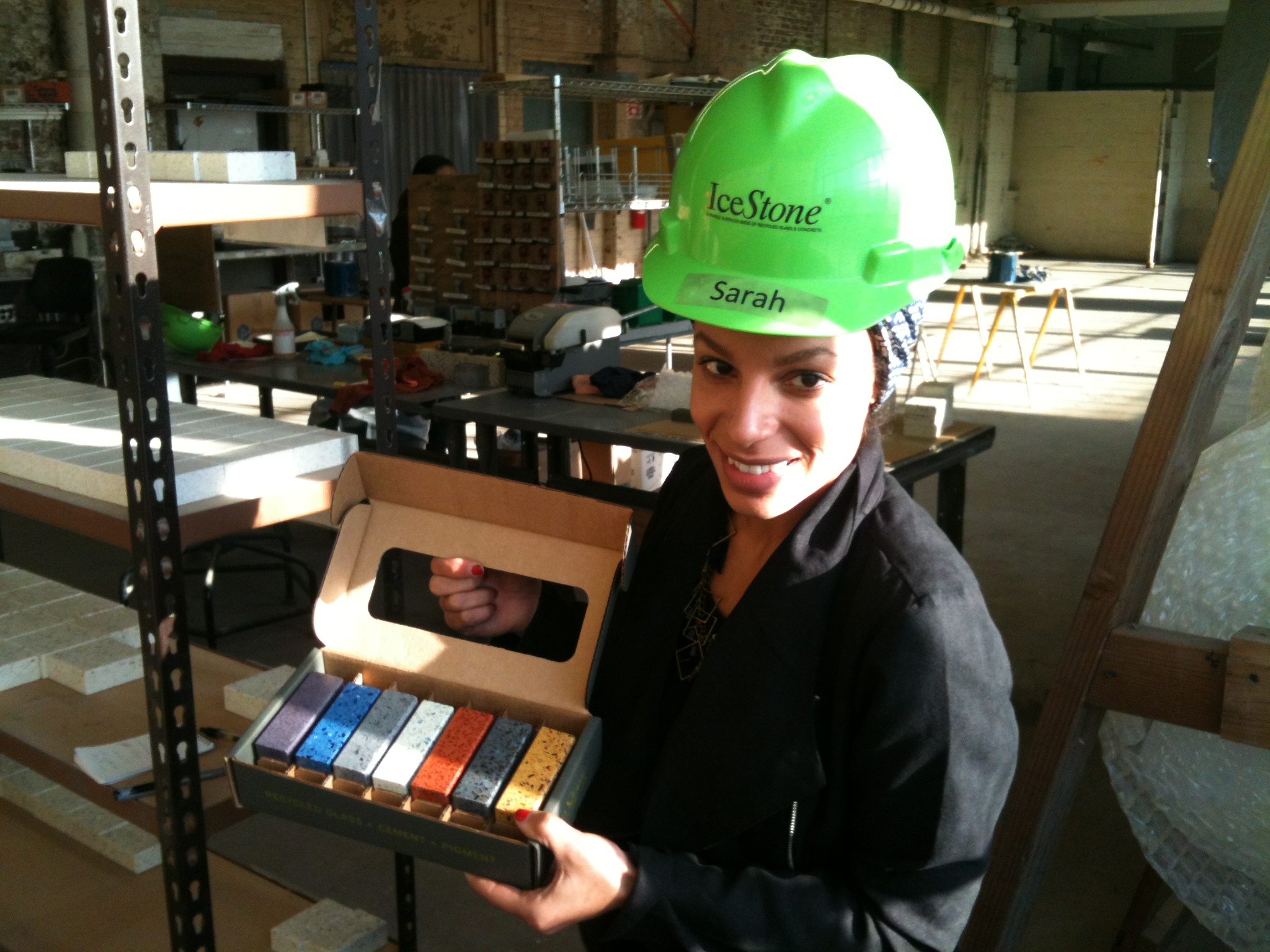
Despite these immense challenges, IceStone’s Marketing Manager Sarah Corey is optimistic about near- and long-term recovery. The Brooklyn Navy Yard Development Corporation, the non-profit entrusted by the city to manage the Navy Yard, has gone above and beyond the call of duty to assist tenants hard hit by the storm. Even other Yard tenants have offered assistance – EcoLogic Solutions generously donated their environmentally-friendly cleaning products.
Inside the factory, IceStone’s employees are rallying and rising to the challenge of recovery by innovating where necessary, working hard to bring production back online, and, amongst other things, diving into the mind-boggling task of hand-sorting and cleaning thousands of pounds of recycled glass compromised by the flood.
Read more about the impacts of Sandy on IceStone in the New York Times.
You Can Help IceStone Recover
Inspired by the success of Navy Yard tenant and fellow Sandy sufferer Ted & Honey’s crowd-sourced fundraising campaign, IceStone has turned to Smallknot drive of their own (click here to see it). If you’re financially able, please consider supporting their work – there are only two days left and just over $2,000 to go. Contribution levels range from $10 to $1,000, with honors attached to each, including your choice of public tour tickets to any tour of the Brooklyn Navy Yard at the $250 level! Funds for this campaign will go directly to rebuild IceStone’s marketing materials damaged in the flood, and we’ll keep you updated on their progress.
Donate to help IceStone recover from storm damage.
Anyone who has taken our Sustainability Tour of the Brooklyn Navy Yard knows that we at Turnstile love IceStone. To begin with, their largely hand-crafted countertops are stunning to look at and are the only durable surface to achieve Gold level eco-certification in the prestigious Cradle to Cradle rating system. The nine-year-old company is a shining example of a corporation dedicated to a “triple bottom line” that considers ecological, social and economic criteria in all institutional decision making. They are a pioneering for-profit manufacturer with all the social and eco-heart of a successful not-for-profit, working to establish new models and measures of corporate success.
Starting wage at IceStone is $15/hour, twice the national minimum wage. Ten percent of the company is owned by its 39 employees, who are represented at the highest level of management and entitled to an annual five percent profit share. Half of the employees are Tibetan immigrants, an unplanned phenomenon resulting from word-of-mouth community referrals. There are translators present at monthly “town hall” meetings, and until recent financial constraints resulted in cutbacks, employees of the month were memorialized not with a barebones cardboard-framed photo, but with a gallery-worthy oil-on-canvas portrait. In an inclusive process rare in many corporate settings – but typical of IceStone – all employees from the floor on up to management are invited to participate in the mission-critical job of naming countertop colors. The factory is drenched in daylight, they recycle their own industrial wastewater, and they have diverted ten million pounds of glass from landfill since 2003… I could go on. And I do, on our tours.
IceStone is exactly the kind of business that the Navy Yard seeks to incubate: a mid-sized manufacturer making a high-quality, innovative product while employing sustainable practices and creating stable and financially rewarding jobs. As a pioneer of corporate-engineered social benefit, IceStone is stretching traditional business models choosing not to cut corners in order to save a buck, or automatically choosing a lower cost solution with an eye to short-term revenue. As a result of these non-traditional methods, they are more vulnerable to unforeseen financial setbacks like those experienced as a result of Sandy. To be fair, nobody was ready for this kind of devastation and even the most well-heeled corporation would have a hard time recovering from a massive storm like Sandy. It even has the insurance companies running for the hills.
Simply put, despite sound financial practices and business savvy, the financial safety margins are slimmer at a relatively young and pioneering company like IceStone. They could make a cheaper product. They could pay their workers less. They could speed up production at the risk of quality. They could stop innovating, investing in research or working to create a truly non-toxic and sustainable product. But they don’t. IceStone takes risks and charts new territory in the name of social and ecological sustainability for the sole reason that it‘s the right way to do business.
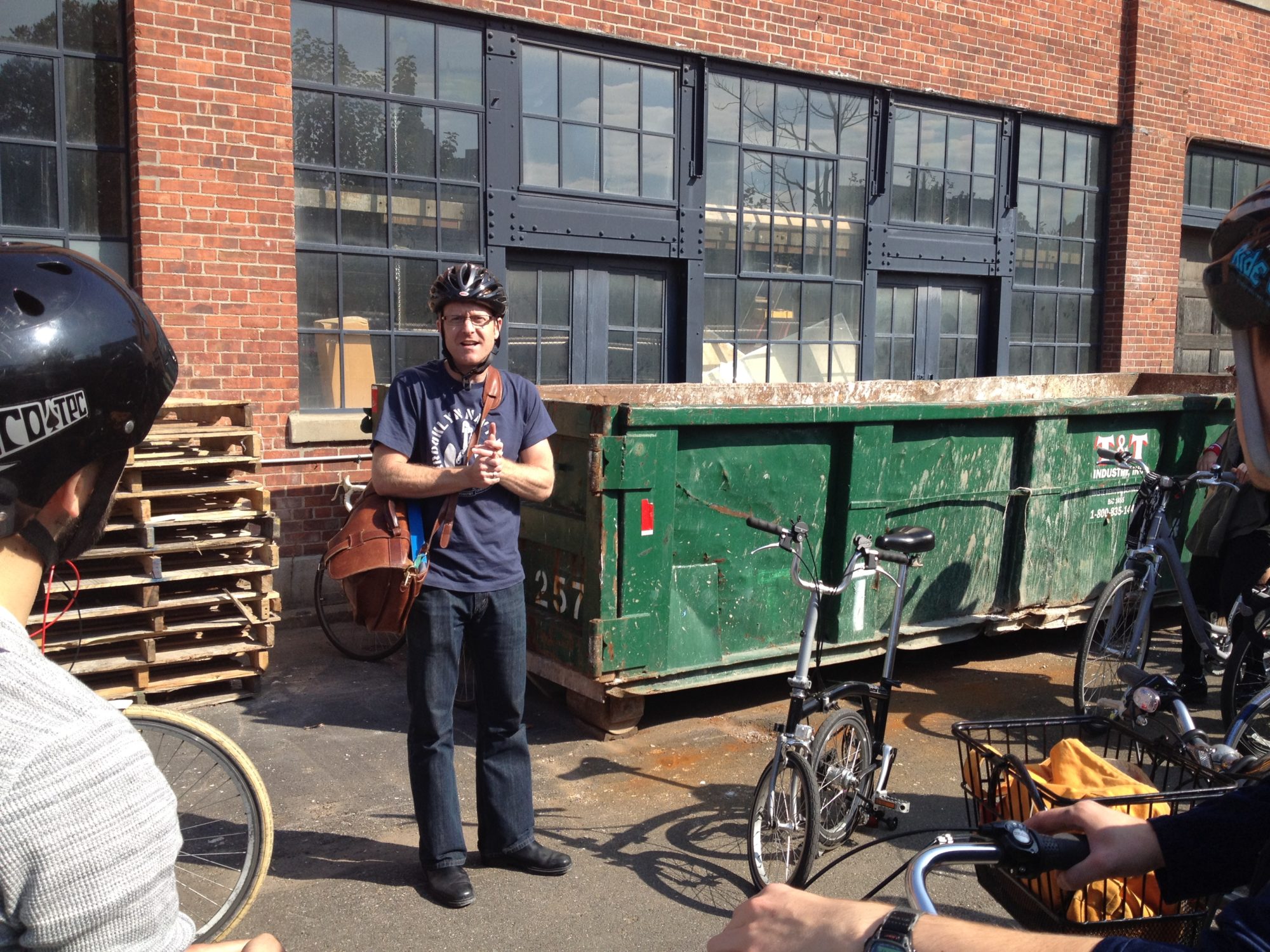
[snippet slug=’bny-footer’]

